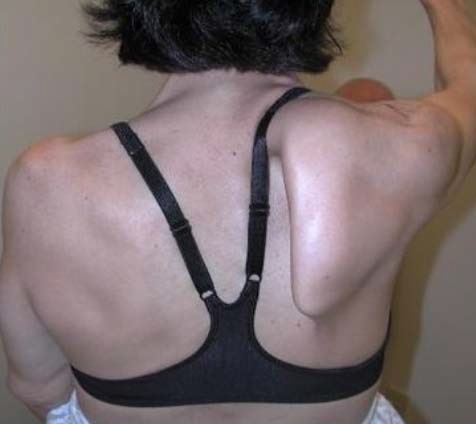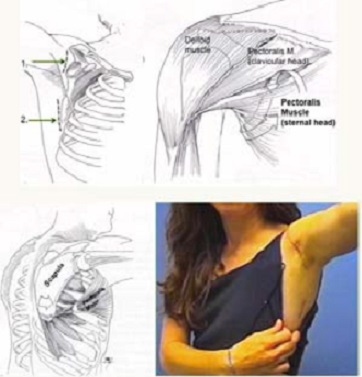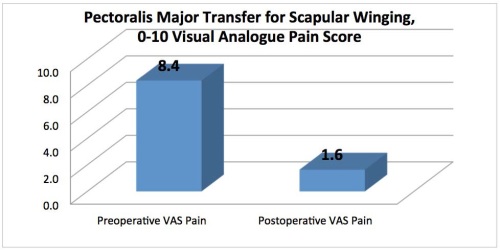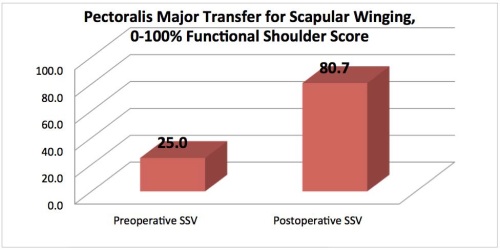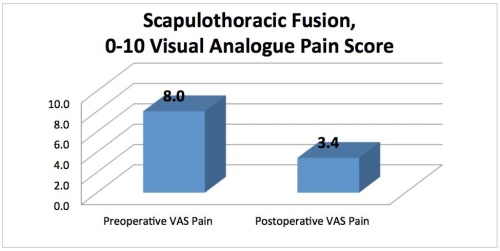Matthew F. Dilisio, M.D., Laurence D. Higgins, M.D., Alex Girden, and Jon J.P. Warner, M.D.
Shoulder Service, Massachusetts General Hospital, Boston, MA
Sports and Shoulder Service, Brigham and Women’s Hospital, Boston, MA
Harvard Medical School, Boston, MA
December 1, 2013
Total Number of Surgeries Performed from 2006-2013: 27
Pectoralis Major Transfer for Winging: 18
Scapulothoracic Fusion: 9
Pectoralis Major Transfer for Scapular Winging
Total number of surgeries performed: 18
Average patient age at the time of surgery: 35.9 years
Average length of follow-up: 18.9 Months
Gender: 72% Female, 18% Male
How much pain relief was achieved?
“How much pain are you in, with 0 representing no pain at all, and 10 representing the worst
pain imaginable?”
How satisfied were our patients?
“Are you satisfied with the results of your surgery, and would you have the surgery again?”
Yes: 90.1%
No: 9.9%
What were the functional outcomes of our patients?
“What is the function of your shoulder as a percentage of normal? 100% represents normal
function, and 0% represents that you have no use of your shoulder.”
Complication Rate: 0%
Scapulothoracic Fusion for Scapular Winging
Total number of surgeries performed: 9
Average patient age at the time of surgery: 39.4 years
Average length of follow-up: 17.3 Months
Gender: 33% Female, 67% Male
How much pain relief was achieved?
“How much pain are you in, with 0 representing no pain at all, and 10 representing the worst
pain imaginable?”
How satisfied were our patients?
“Are you satisfied with the results of your surgery, and would you have the surgery again?”
Yes: 100%
No: 0%
What were the functional outcomes of our patients?
“What is the function of your shoulder as a percentage of normal? 100% represents normal
function, and 0% represents that you have no use of your shoulder.”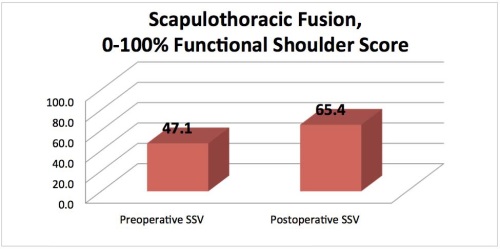
Complication Rate: 11%
- 1 complication was observed out of 9 patients. This was a postoperative seroma that was treated nonoperatively with antibiotics and resolved.
- 1 patient developed a fibrous union with an otherwise excellent result.
- 2 Patients required removal of hardware.
For information about the diagnosis and treatment of scapulothoracic winging, please refer to the following Boston Shoulder Institute Module:
https://bostonshoulderinstitute.com/patient-resources/injuries/scapulothoracic-winging/

